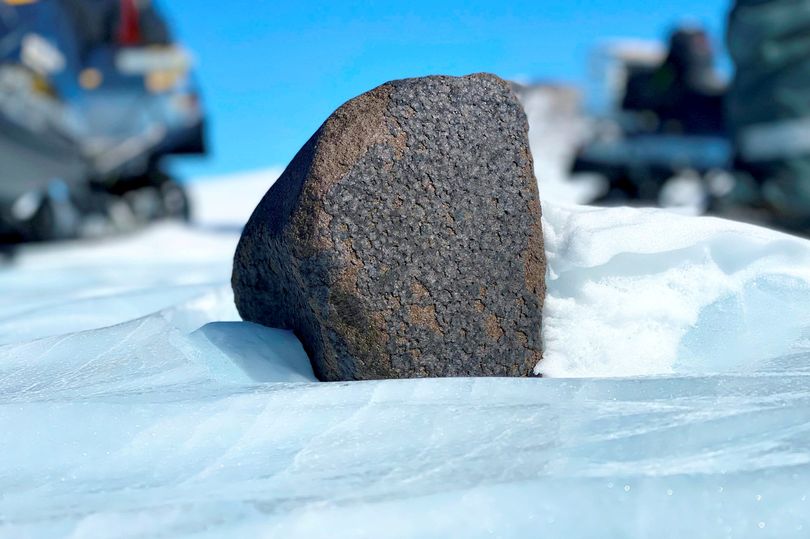Huge meteorite discovered in Antarctica contains oldest material in solar system
Researchers trekked for days across Antarctica before finding an unusually large meteorite, that contains some of the oldest material in the solar system
Researchers in Antarctica have discovered one of the largest meteorites ever found on the continent. The space rock found in December 2022 weighs 7.6kg.
Antarctica is a favourite spot for researchers hunting for meteorites. While the continent is not hit by meteorites any more often than anywhere else on Earth the continent’s cold dry weather helps preserve those that do land. Active glaciers also churn up ancient meteorites buried beneath the ice.
Helpfully the uniform white background makes spotting the dark rocks easier. The team that found the asteroid also used satellite data about Antarctica’s surface and machine learning tools to predict where meteorites would most likely be found.
Finding a meteorite this large is very unusual. Over the past hundred years more than 45,000 meteorites have been found in Antarctica - but the majority have been micrometeorites, which weigh at most a few hundred grams.
According to Maria Valdes, a member of the team that discovered the meteorite and a research scientist at the Field Museum and the University of Chicago, only a hundred or so of the meteorites discovered in Antarctica have been the same size or larger. She added: “Size doesn’t necessarily matter when it comes to meteorites, and even tiny micrometeorites can be incredibly scientifically valuable, but of course, finding a big meteorite like this one is rare, and really exciting.”
“To find such a big one - this is kind of luck to be honest,” said Maria Schönbächler, a professor at Eidgenössische Technische Hochschule Zurich, who was also part of the team.

The meteorite appears to be made of chondrite, the most common type of meteorite material. These meteorites likely originated in the aseteroid belt between Mars and Jupiter and contain some of the oldest material in the solar system.
The meteorite is now being sent for chemical analysis at The Royal Belgian Institute of Natural Sciences, Belgium. The meteorite is being transported in a special cool box to stop any thawing that could damage it delicate chemical structure.
The meteorite was discovered during an exhibition near Princess Elisabeth Antarctica research station. The discovery team included Schönbächle, Valdes, Ryoga Maeda, a doctoral student at Vrije Universiteit Brussel and the Université Libre de Bruxelle, and was led by Vinciane Debaille, a professor at the Université Libre de Bruxelles.
The four researches spent days trecking across ice fields, riding snowmobiles, and sleeping in tents on the ice as part of the discovery trip. Despite it being summer in Antarctica the average temperature was an icy -10C.
Join our commenting forum
Join thought-provoking conversations, follow other Independent readers and see their replies
Comments


Bookmark popover
Removed from bookmarks